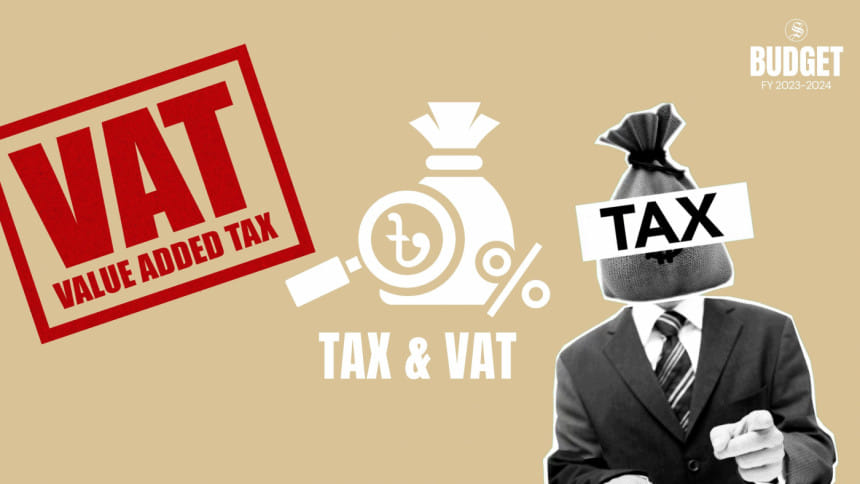Businesses express frustration for red tape, VAT hike

Businesspeople yesterday expressed frustration over bureaucratic red tape, increasing value added tax (VAT), and a recent proposal to raise gas prices, stating that these are barriers to fresh investment.
They alleged that the government did not hold any discussions with stakeholders before raising VAT rates and proposing higher energy prices, nor did it conduct any cost-benefit analysis.
Everyone wants to exploit businesspeople, claimed AK Azad, a former president of the Federation of Bangladesh Chambers of Commerce and Industry.
Some 40 percent of business expenses are behind bribes. "No one comes to move files a little quicker…There is no one to advocate for us. So, who will invest in this country?" he said.
Businesspeople alleged that the government did not hold any discussions with stakeholders before raising VAT rates and proposing higher energy prices
Azad was addressing a seminar on the country's investment prospects and challenges at Economic Reporters Forum (ERF) in Dhaka.
The country is not attracting new investments due to policy inconsistencies. But Bangladesh has potential and businesses should be allowed to conveniently conduct trade, he said.
Speaking about the recent VAT and gas price hikes, Azad emphasised the need for careful planning.
"If this policy is implemented, where will we go? Before increasing the price of gas, it should be considered who uses gas, why it is used, what its current production cost is, and how much it will increase," he said.
Policymakers should consult businesses and perform a cost analysis before taking such decisions, irrespective of whether it involves local products or export-oriented ones, he added.
Azad also expressed concern about law and order.
"If the deterioration of law and order cannot be controlled, we will not be able to utilise this potential. All opportunities will go to our friends (other countries). They know when to implement policies," he said.
Echoing this sentiment, Abul Kashem, a former president of the Dhaka Chamber of Commerce and Industry, said a lack of policy continuity was the main obstacle to increasing investment.
"Policy changes are frequently made through Statutory Regulatory Orders to benefit specific groups," he said.
Kashem added that the private sector was not involved in policymaking. All sectors have been ruined due to corruption, he alleged, suggesting that these issues should be addressed and institutions strengthened.
"We have to work for the country to create a sustainable investment environment," he said.
Hafizur Rahman, administrator to the Bangladesh Garment Manufacturers and Exporters Association, urged a revision of the rules for obtaining business-related certificates.
"The existing requirements for VAT, tax, and business certificates create challenges for new investors," he said.
Regarding concerns about the gas supply crisis in the industry, Bangladesh Investment Development Authority Chairman Chowdhury Ashik Mahmud Bin Harun stated that plans were underway to transfer state-owned industries to the private sector.
"This move will be helpful as these industries already have gas, water, and electricity supply facilities," he said.
Among others, Mohammad Iqbal Chowdhury, chief executive officer of LafargeHolcim Bangladesh, and ERF President Doulot Akter Mala also spoke at the event.

 For all latest news, follow The Daily Star's Google News channel.
For all latest news, follow The Daily Star's Google News channel. 



Comments